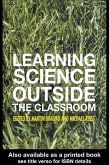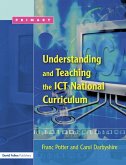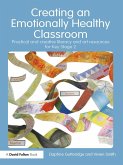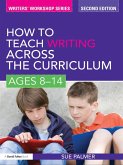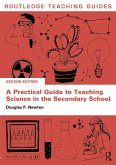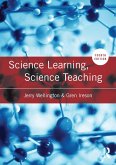- at museums, science centres and planetaria
- from newspapers, magazines and through ICT
- at industrial sites and through science trails
- at zoos, farms, botanic gardens, residential centres and freshwater habitats
- in school grounds.
With contributions from well known and respected practitioners in all fields of science education and through using case studies, Learning Science Outside the Classroom offers practical guidance for teachers, assistant teaching staff and student teachers involved in primary and secondary education. It will help enable them to widen the scientific experience and understanding of pupils.
The advice in this book has been checked for safety by CLEAPSS.
Dieser Download kann aus rechtlichen Gründen nur mit Rechnungsadresse in A, B, BG, CY, CZ, D, DK, EW, E, FIN, F, GR, HR, H, IRL, I, LT, L, LR, M, NL, PL, P, R, S, SLO, SK ausgeliefert werden.
'This is a well-timed book ... Each case study offers practical guidance in making the most of the opportunity ... I kept on finding myself nodding in agreement with the comments on how fieldwork makes science come to life.' - Sian Crisp, Primary Science & Technology Today
'...provides answers to most of the problems teachers are likely to face in organising a trip and gives guidance on how to get the most out of the site to be studied...This book will be useful to teachers who are looking to change their science courses to include activities that will help prepare their students for life in the 21st century.' - John Parkinson, Education in Chemistry, January 2006
'This is a well-timed book ... Each case study offers practical guidance in making the most of the opportunity ... I kept on finding myself nodding in agreement with the comments on how fieldwork makes science come to life.' - Sian Crisp, Primary Science & Technology Today
'...provides answers to most of the problems teachers are likely to face in organising a trip and gives guidance on how to get the most out of the site to be studied...This book will be useful to teachers who are looking to change their science courses to include activities that will help prepare their students for life in the 21st century.' - John Parkinson, Education in Chemistry, January 2006



